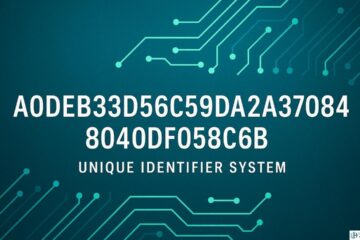The web can sometimes feel like a dangerous place. You’ve probably heard of people targeting others, stealing information, and causing chaos online. But do you know the difference between hackers and predators?
The two terms are often used interchangeably, but they refer to two very different kinds of people. Hackers are individuals who use their technical knowledge to gain access to computer systems or networks, while predators are those who use the internet for malicious purposes, such as for grooming victims or distributing child exploitation material.
In this article, we’ll take a closer look at these two terms and the differences between them. We’ll also discuss why it’s important to understand these issues, and how you can protect yourself from both hackers and predators online.
Overview of Hacking and Predation
When it comes to digital security, there are two main sources of potential threats: hackers and predators. Although the terms are often used interchangeably, it’s important to understand the difference between the two so you can best protect yourself online.
Hackers are people who attempt to gain unauthorized access to a computer system or its data. They may be motivated by personal gain, political agenda, or simply curiosity. On the other hand, predators are people who use digital platforms or services with malicious intentions, often targeting vulnerable users. These predators often have sexual motives and use manipulation tactics such as catfishing to lure victims into conversations or relationships with them.
While some hackers and predators may overlap in terms of their motivations or tactics, they should not be viewed as the same; understanding their characteristics is key to developing effective protection strategies. That way, you can take full advantage of the endless opportunities that digital technology offers without having to worry about falling victim to either type of cybercrime.
What Is a Hacker?
Hackers are the computer and network security experts of the modern world. A hacker is someone who uses their technical knowledge to find flaws in a computer or network system and fix them. Hackers are highly skilled at finding these flaws and vulnerabilities in otherwise secure networks. They are also adept at leveraging that knowledge for their purposes, such as gaining access to confidential information or using it to perform malicious activities.
Hackers use a variety of techniques such as social engineering, coding, reverse engineering, and physical intrusion to exploit weaknesses in networks and systems. However, their ultimate goal is generally not to cause damage or take control of a system; rather, hackers strive to identify vulnerabilities so they can be patched and the security of the system enhanced.
Although hackers may sometimes be seen as malicious actors engaged in criminal activities, most hackers are driven by an ethical code that guides their work toward protecting systems rather than exploiting them.
What Is a Predator?
Let’s shift gears and talk about predators. These guys are a step up from hackers and they have the skills and know-how to do some serious damage. A predator is someone who uses the internet to target vulnerable individuals or to stalk and harass people.
Predators come in all forms and they can present themselves as anything—from a friendly person to someone in need of help, or even an authority figure. They may pretend to be something that they’re not to gain access to your computer, or even into your home.
Predators usually use advanced tools and techniques that are more sophisticated than what a hacker might use. They target their victims by getting them involved in activities that can be dangerous and/or illegal, such as cyberbullying or engaging in sexual activities online with minors.
It’s important to remember that predators are perpetrators of criminal activity and should not be taken lightly. In addition to the criminal activity being carried out, predators can also threaten a person’s security and safety – oftentimes leading to physical harm or worse if not stopped in time.
Difference Between Hackers and Predators
You probably already know that hackers and predators are two different things, but do you know what makes them different? Let’s take a closer look.
Hackers are individuals who use computer systems to gain information or access networks without proper authorization. Hackers are often motivated by curiosity or the challenge of gaining access to a system but do not generally aim to cause harm.
Predators, on the other hand, use the internet to actively seek out and exploit victims for personal gain. Predators can be anyone from stalkers to fraudsters and sexual predators. They often exploit their victims’ technological inexperience or naivety, making them especially dangerous as they can be difficult to detect.
Here is a handy list of the main differences between hackers and predators:
- Motivation: A hacker is usually motivated by curiosity while a predator usually has malicious intent.
- Goals: A hacker might seek information while a predator seeks something tangible like money, power, or control over their victims.
- Methods: A hacker’s methods tend to be more technical while a predator’s methods are more psychological and manipulative.

Types of Hackers:
- White Hat
- Gray Hat
- Black Hat
You may have heard the terms “white hat,” “gray hat,” and “black hat” used about hackers. But what do these terms mean?
Essentially, hats are a way of categorizing different types of hackers. Here’s a quick rundown:
White Hats
White hats (or ethical hackers) practice hacking legally. They use their knowledge to find vulnerabilities in computer networks or systems to help make them more secure. And since they’re actively trying to secure systems, they are not considered criminals by the law.
Gray Hats
Gray hats don’t necessarily abide by the law when it comes to hacking. They may take advantage of vulnerabilities they find, but they don’t generally do anything seriously malicious or illegal. Gray hats often test out their ability by trying to hack into a network before alerting the organization and offering their security services.
Black Hats
On the other end of the spectrum are black hats (or crackers). These hackers break into computer systems without permission for malicious reasons, often for financial gain or personal gain at someone else’s expense. Black hats use their knowledge of computers and networks for crime and profit—and that is illegal and unethical.
Types of Predators
- Cyberstalkers
- Cyberbullies
- Online Predators
Do you know the difference between a hacker and a predator? It’s important to understand the difference between these two online dangers because they can have different types of motives and goals.
Cyberstalkers
One type of predator is a cyberstalker, who is someone who systematically sends threatening or harassing messages to their victim. These predators typically want to intimidate their victims or harass them until they feel powerless. They might also try to damage the victim’s reputation or interfere with their work or studies.
Cyberbullies
Another type of predator is a cyberbully, who is someone who embarrasses and intimidates their victim to gain power over them. Cyberbullies typically target vulnerable individuals and may even get others involved in bullying behavior.
Online Predators
The third type of predator is an online predator, who uses deception and manipulation to take advantage of their victims for sexual gratification or financial gain. These predators often have multiple victims at the same time, and use tricks such as convincing the victim that they are in an exclusive relationship when they are really messaging several people at once.
So you need to be able to spot the differences between hackers and predators. Although hackers typically aim to steal your data or access systems without permission, such as by exploiting security vulnerabilities, predators use much more malicious tactics with more sinister motives in mind. Knowing this difference will help you keep these malicious actors away from your digital life.
How Hackers Gain Access to Systems
So, how do hackers gain access to systems? Well, it all depends on their main objective. Generally speaking, hackers use various methods to gain access, such as:
Social Engineering
Social engineering is a technique that uses psychological manipulation to get victims to reveal confidential information or access systems. This can include sending malicious emails or creating fake login pages to capture usernames and passwords.
Brute Force Attacks
A hacker might use an automated tool to guess your username/password combinations until they get it right. To protect yourself from brute force attacks, you should enable two-factor authentication and use strong passwords that are changed periodically.
SQL Injection Attacks
An attacker may also use a type of code injection technique known as an SQL injection attack. This involves injecting malicious code into an application’s SQL database to take control of the server or expose sensitive information like usernames and passwords. To prevent these types of attacks, organizations need to ensure that there are proper security measures in place for their applications and databases.
Hackers have a wide range of tools at their disposal for gaining access to systems, but with the right security measures in place, you can protect yourself from these threats.
Keeping Systems Secure Against Both Hackers and Predators
Have you ever heard the words “hacker” and “predator” used interchangeably? While both pose risks to computer systems, there is a very distinct difference between them.
A hacker is someone who uses their skills to gain access to a computer system without permission, while a predator is someone who uses their skills to manipulate people (usually vulnerable ones) into giving up personal information.
Knowing the difference between the two can help you better protect your computer system and the people who use it. Here are some tips for keeping your systems secure against both hackers and predators:
Secure Your Systems
First and foremost, make sure your computer system is secure with strong authentication protocols, updated software and hardware, effective firewalls, VPNs, encryption technology, and reliable antivirus programs. This will help protect against unauthorized access from hackers.
Train Your Team
Train your team on cybersecurity best practices so they know what to look out for when it comes to malicious activity from hackers or predators. They should also be aware of phishing emails, which are designed to trick unsuspecting users into giving up confidential data.
Monitor Activity
Monitoring systems for suspicious activity can help you detect potential risks posed by hackers or predators. Use powerful security tools that detect anomalies in user behavior and other potential threats that could indicate malicious activity.
The Consequences of Cyber Predation
The consequences of cyber predation can be serious and long-lasting. Victims may feel violated, embarrassed, or betrayed. They may suffer from depression, anxiety, or post-traumatic stress disorder. Online predators can also put their victims at risk of identity theft and financial loss.
Online predators have access to a variety of personal information that can be used for identity theft and other malicious activities. They can stalk their victims, steal passwords and login credentials, or gain access to sensitive information on social media accounts. Additionally, they can use tactics like blackmail and extortion to extort money or other forms of compensation from their victims.
It is important to remember that the consequences of cyber predation go well beyond identity theft and financial loss. Victims are more likely to become victims again in the future because they will be more vulnerable as a result of their experience with an online predator.
This makes it important to take steps to protect yourself from online predators and understand the differences between hackers and predators before you engage in any online activity.
Preventative Measures to Take Against Hackers and Predators
It’s important to know that there are preventative measures you can take to protect yourself from hackers and predators. Taking these measures won’t guarantee that you’re safe, but it can help make it a lot less likely that someone will be able to access your most sensitive data or even worse, harm you.
The first step is to understand the difference between hackers and predators so you know what actions they might take and how they might try to access your data. Hackers may use malicious software, spam emails, or other means of infiltrating a system, while predators use more targeted methods like phishing or social engineering. Knowing what methods they might use can help you implement approaches that will protect you against them.
You should also consider using strong passwords and two-factor authentication whenever possible as an extra layer of security against hackers and predators. It’s also important to be aware of any new technologies or trends in the cyber security world so that you can stay informed and up-to-date on the best methods for protecting your data and personal information from potential attacks.
Finally, it’s wise to practice good internet safety habits like not opening emails from unknown sources or clicking on suspicious links—these simple steps could save you from a lot of headaches down the road.
Conclusion
In short, hackers and predators don’t have the same intent, and understanding the difference can help us stay safe online. Hackers are motivated by the challenge of outsmarting security measures and breaching systems.
Predators, on the other hand, target vulnerable individuals to harm them in some way.
Knowing the difference between a hacker and a predator is critical for keeping yourself safe online. Hackers may breach systems, but they are not interested in harming or exploiting individuals.
Predators, on the other hand, may use technology and the internet to target and exploit vulnerable individuals.
The best way to protect yourself from predators is to be aware of potential risks and to use the internet with caution.
Read Also: 4 Legal Ways To Make Money As A Hacker










